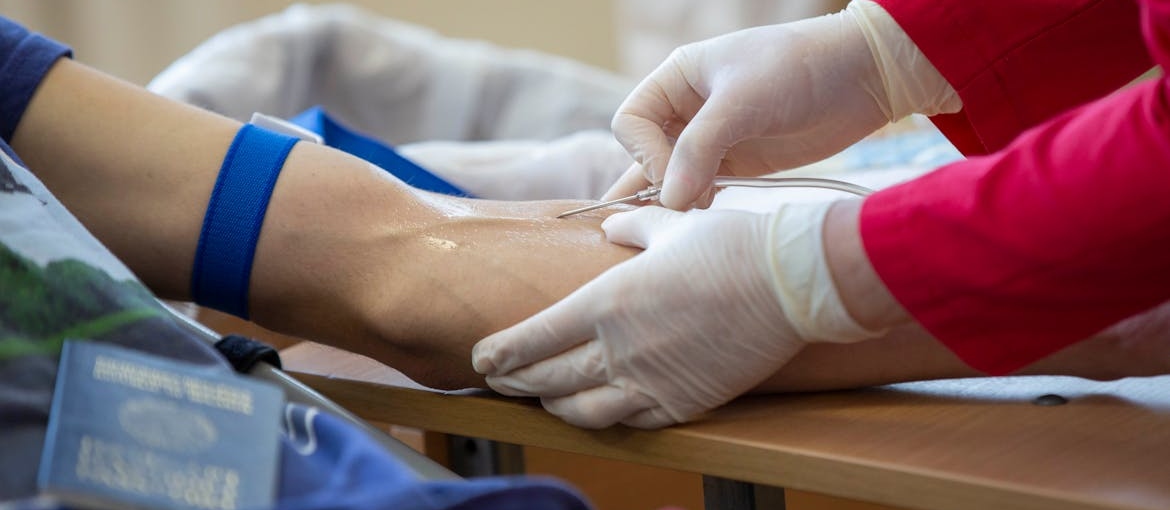Many people ask, can you overdose on DMT? It’s an honest question, especially when curiosity or peer pressure is involved. DMT is a powerful hallucinogen, and even small amounts can cause overwhelming effects. While it may not carry the same overdose risks as opioids or alcohol, it can still create serious health problems. Panic, rapid heart rate, and dangerous behavior are real concerns. If you or someone you love is struggling with hallucinogen use, professional support can help. Addiction treatment centers in West Virginia provide safe, evidence-based care for people dealing with substance misuse. Learning the risks is the first step toward making safer choices. Let’s look at what science and medical experts say about DMT, its effects, and how to recognize when help is needed.
What Is DMT?
DMT is a hallucinogenic compound that produces intense visual and sensory changes. It occurs naturally in certain plants and can also be made synthetically. People often use it by smoking, vaping, or as part of ayahuasca brews. Unlike other drugs that last hours, DMT trips are usually short but very powerful.

Many drugs can cause hallucinations, but DMT is known for creating experiences that feel extremely vivid and sometimes overwhelming. Because it acts quickly on brain chemistry, even small doses can create dramatic effects. While some users describe feelings of insight, the risk of panic or unsafe behavior remains high. Learning about what DMT is and how it works is the first step in understanding why it can be dangerous.
Can You Overdose on DMT?
Many people ask, can you overdose on DMT. While fatal overdoses are not common, that doesn’t mean the drug is safe. High doses can cause severe panic, disorientation, or loss of control. Some users experience racing heart rates or dangerous blood pressure spikes. Accidents while intoxicated are also a major concern.
Because it acts so quickly, you may not realize how intense the effects will be until it’s too late. Overdosing doesn’t always mean death—it can mean reaching a level of psychological and physical strain that places your health at serious risk. The lack of reliable dosage guidance makes the dangers harder to predict. Even without a fatal overdose, the risks are real and should not be dismissed when considering using DMT.
Short-Term Effects of DMT Use
DMT produces rapid and overwhelming changes in perception and body reactions. Many users describe feeling completely detached from reality. These effects can set in within seconds and last for about 15 to 30 minutes. Even in a short period, risks can appear. While some people chase intense visuals, the mental and physical strain can be frightening. These are common short-term effects:
- Increased heart rate: Dangerous for people with heart conditions.
- Rapid changes in blood pressure: Can trigger medical emergencies.
- Intense hallucinations: Loss of awareness of surroundings.
- Panic or anxiety: Feelings of fear or loss of control.
- Nausea or vomiting: Especially when mixed with ayahuasca.
- Muscle tremors: Shaking or involuntary movements during the trip.

Potential Dangers and Risks of High Doses
Taking high doses of DMT can lead to life-threatening situations. The drug’s impact on the heart can push blood pressure to unsafe levels. For someone with undiagnosed health issues, this creates dangerous complications. Mental health risks are also serious. High doses may trigger panic attacks, psychosis, or violent behavior. Because the drug causes complete loss of awareness, accidents and injuries are common.
Treatment becomes important when DMT use gets out of control. A partial hospitalization program West Virginia residents access may help stabilize someone dealing with hallucinogen abuse. These programs provide intensive therapy while allowing patients to return home at night. With structured care, people learn to manage psychological struggles that come with heavy DMT use. Without support, risks only increase.
Long-Term Risks of Repeated DMT Use
Using DMT repeatedly can create lasting effects on both the brain and mental health. While it may not cause physical dependence, the psychological risks are concerning. Some people develop ongoing anxiety or depression after frequent use. Others struggle with flashbacks or visual disturbances that return long after stopping the drug. Long-term use also increases the chance of psychological dependence, where the drug feels necessary to cope. Here are some possible long-term risks:
- Hallucinogen persisting perception disorder: Lingering visual distortions or flashbacks.
- Ongoing anxiety: Fear or unease triggered by past experiences.
- Mood instability: Depression or mood swings linked to repeated use.
- Difficulty focusing: Trouble with memory and concentration.
- Sleep problems: Disrupted patterns caused by brain chemistry changes.
- Increased tolerance: Needing higher amounts for the same effect.
Interactions With Other Substances
Mixing DMT with other substances increases the risks dramatically. Alcohol, stimulants, and opioids can create unpredictable reactions. Combining DMT with antidepressants, especially MAOIs or SSRIs, may be life-threatening because of serotonin overload. These dangerous interactions are often underestimated by users. People with existing health conditions or those taking medication face even greater risks.
For those who have served in the military and are struggling with substance use, specialized programs can help. A drug rehab for veterans may provide targeted care that addresses both trauma and addiction together. This kind of support is critical because DMT combined with other drugs doesn’t just amplify the high—it raises the chances of severe health consequences. Avoiding risky mixes is one of the most important safety steps.

Recognizing the Signs of DMT Overdose or Dangerous Reaction
Even though DMT overdose doesn’t always mean death, serious health emergencies can occur. Recognizing these signs quickly is important. If you notice sudden chest pain, seizures, or extreme panic in someone using DMT, emergency help is needed. Mental symptoms can also be severe, leading to confusion or aggressive behavior. For those who struggle with both mental health and substance use, dual diagnosis treatment West Virginia programs may be the right choice. Here are signs of overdose or dangerous reaction:
- Severe chest pain: May signal cardiovascular stress.
- Seizures: Neurological complications triggered by high doses.
- Intense paranoia: Extreme fear or delusions.
- Hallucinations beyond control: Unable to recognize reality.
- Violent or unsafe behavior: Acting in ways that cause harm.
- Loss of consciousness: Dangerous collapse requiring urgent care.
Treatment Options for DMT Misuse and Addiction Concerns
Many people search for answers to the question: can you overdose on DMT. The truth is that while fatal overdoses are rare, high doses can still trigger serious health problems. Panic, rapid heart rate, and reckless behavior are risks that shouldn’t be ignored. When use becomes difficult to control, professional treatment can make a difference. Recovery starts with proper medical support, therapy, and strong community resources that give lasting guidance and hope.
Detox and Medical Supervision
For anyone struggling with DMT misuse, detox under medical care can be the first important step. Symptoms may not be as physically intense as opioids or alcohol, but mental effects can be unpredictable. A safe setting helps protect against risks such as panic or psychosis. A drug and alcohol rehab center Charleston WV has can provide the structured care needed during detox.
Doctors and nurses are available to monitor vital signs and provide immediate help if complications arise. This type of support reduces the danger of relapse early on. Can you overdose on DMT is a question that often brings people to treatment, and supervised detox offers the safest answer. If you are ready to change, starting with medical supervision may give you the foundation you need.

Therapy for Hallucinogen Abuse
Once detox is complete, therapy becomes the foundation of recovery. DMT may not cause physical dependence, but its psychological pull is real. Intense trips can leave people shaken and unsure of how to cope. Individual therapy for addiction provides a private space to explore these struggles. Therapists help you process difficult experiences, manage cravings, and build healthier coping strategies.
They also work to address any underlying mental health issues that may feed into substance use. Can you overdose on DMT is a question linked to fear of loss of control, and therapy helps you regain that control in everyday life. With the right guidance, it becomes easier to understand your relationship with substances and develop long-term recovery skills that prevent setbacks and support personal growth.
Support Systems for Recovery
Lasting recovery often depends on having strong support. Even after detox and therapy, staying on track can feel overwhelming. This is where group meetings, family support, and financial access to treatment matter. For many, blue cross blue shield drug rehab coverage helps reduce the cost of care, making long-term treatment more accessible. Peer groups can provide encouragement when cravings appear.
Family therapy can repair strained relationships. Community resources can connect you with ongoing recovery programs. Asking can you overdose on DMT shows you want answers, but support systems give you the strength to keep going beyond the question. These networks offer accountability, compassion, and hope. With the right support in place, recovery is not just possible—it becomes sustainable.

Safer Approaches and Harm Reduction Tips
Even if you are not in treatment, there are safer ways to reduce the risks of DMT. Harm reduction focuses on making choices that lower the chance of serious problems. While it cannot erase every danger, it can help you avoid immediate medical or psychological crises. Anyone wondering about overdose risks benefits from learning how dosage, environment, and personal health all play a role. With better knowledge, you can protect yourself from harm.
Importance of Dosage Control
DMT is extremely potent, which makes dosage one of the most important safety factors. A tiny increase can completely change the experience, turning curiosity into fear or even danger. Using more to chase stronger effects often backfires, leaving you overwhelmed and at risk. Careful measurement is essential. Never rely on guesswork. Having a trusted person present can help if things go wrong. Respecting dosage can reduce the chance of severe panic or physical strain.
Set and Setting
The environment in which you use DMT matters. Unsafe surroundings can increase anxiety and accidents. A safe and calm place, along with trusted people nearby, reduces the chance of harm. Your mental state before use also plays a big role. Stress, depression, or unresolved trauma can make the experience far more difficult. Being thoughtful about where you are, and who you are with, helps minimize unnecessary risks.

Medical and Mental Health Screening
Before experimenting with DMT, it’s important to think about your health background:
- Heart conditions: May increase the risk of heart attack or stroke.
- High blood pressure: DMT can raise levels quickly and cause medical emergencies.
- Mental illness: Can trigger or worsen depression, anxiety, or psychosis.
- Medications: Interactions with antidepressants or other drugs can be dangerous.
- Family history: Past mental health or substance struggles raise the risk of harm.
- Seizure disorders: DMT may increase the likelihood of seizures.
- Pregnancy or breastfeeding: Effects on unborn and nursing babies are unknown and potentially harmful.
Final Thoughts: Understanding the Risks of DMT Overdose
So, can you overdose on DMT? The answer is complex. While it may not cause the same fatal overdoses seen with opioids or alcohol, DMT can still create dangerous situations. High doses may trigger intense panic, rapid heartbeat, or even medical emergencies. Mixing it with other drugs raises the risks even more. If you or someone close to you is experimenting with DMT and struggling to control use, it’s a sign to seek help. Treatment programs can provide safe support and tools for long-term recovery. Asking questions shows you care about your health and future. You don’t need to face this alone. Reaching out for help can protect you from serious harm and open the door to a healthier life.



